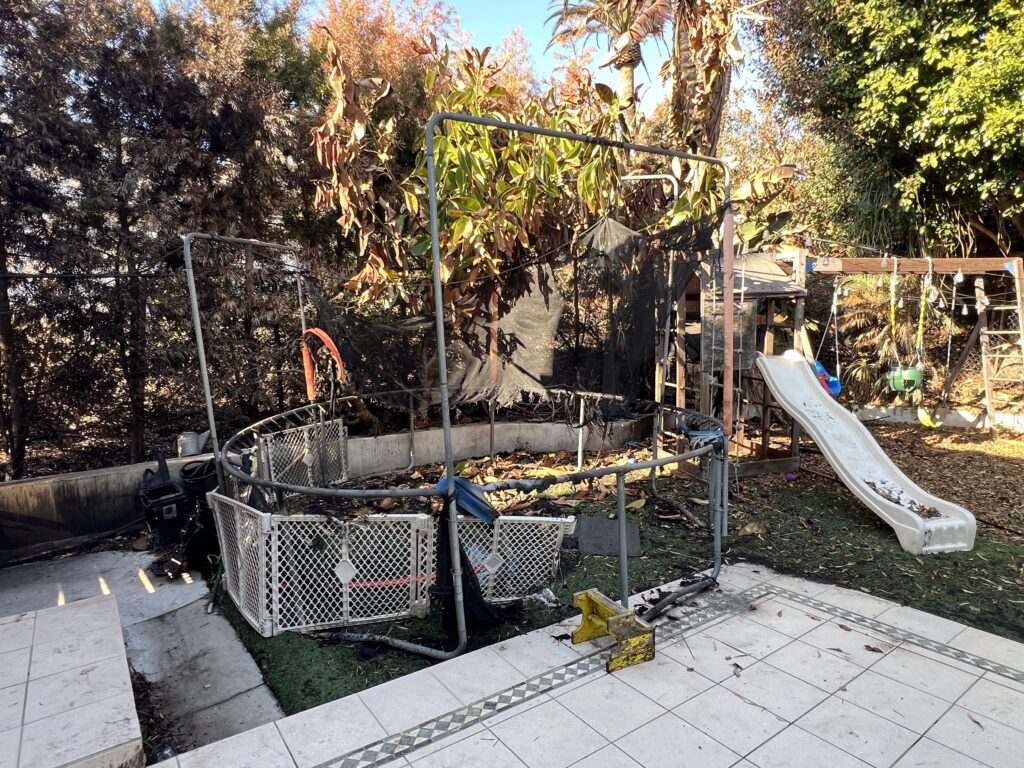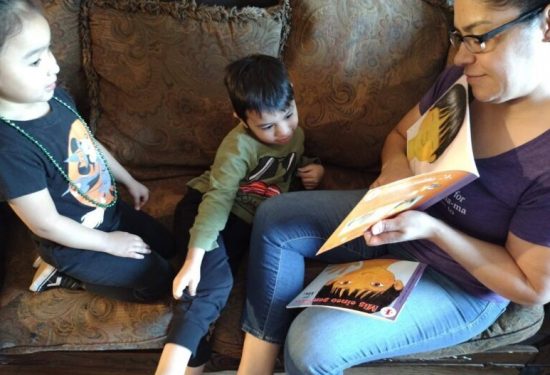On the morning of Jan. 7, the Palisades Fire ignited in Los Angeles, burning over a thousand acres of land within hours. Later that evening, the Eaton Fire ignited in the communities of Altadena and Pasadena. These were the first of 10 fires that blazed in January in Los Angeles County, with the Eaton and Palisades fires ranking as the first and second most destructive wildfires, respectively, in Southern California history. The fires raged for over three weeks and were contained on January 31. The Palisades and Eaton Fires claimed the lives of 30 people.
While their community burned, home-based child care providers in the evacuation zones faced an overwhelming dilemma. They needed to protect themselves and their families from the incoming flames and smoke. And they felt guilt over leaving families without a source of child care. They stressed over losing their home and business in one fell swoop.
“Some providers realized they lost their home after being evacuated overnight. People were in survival mode,” said Cynthia Rodriquez with Options for Learning, a nonprofit child care and early learning agency. “Then the calls started coming in. It was a great loss to families in and out of the evacuated communities. Families still needed child care.”
Evacuated home-based providers could no longer provide child care to almost 300 families in greater LA County, according to the union representing child care providers in the area. Families needed support, and so did the providers.
Home Grown partnered with LA-based organizations to provide immediate assistance to the caregivers in the midst of the chaos. These included organizations in the Child Care Alliance of Los Angeles (the Alliance), a partnership of 10 organizations and agencies that deliver services to families and child care providers across LA County. Their preexisting relationships with the communities impacted by the fires were critical for reaching and supporting providers.

Home Grown’s Home-Based Child Care (HBCC) Emergency Fund for Severe Weather & National Disaster Response (the Fund) supports home-based child care providers – both licensed and license-exempt providers – impacted by disasters. The original Home-Based Child Care Emergency Fund was established in April 2020 in response to the coronavirus pandemic, and provided direct financial support to HBCC providers. The Fund was then leveraged to address immediate needs among providers impacted by Hurricane Helene in North Carolina and Florida. It has since deployed funds to providers impacted by other national disasters and severe weather events.
“In times of emergency and disaster, financial assistance can make an incredible difference,” said Natalie Renew, executive director of Home Grown.
Within a week of the Palisades fire, Home Grown partnered with Beam, a platform for application and payment management, to create a streamlined application for caregivers and providers impacted by the fires to receive $500 of immediate cash assistance. It was available to HBCC providers who were residents of LA County and providing child care as of mid-December 2024. It was intended to meet expenses that were not covered by insurance or other reimbursements. The application took less than 15 minutes to complete and did not require documents to be uploaded, a typical requirement that often serves as a burden for those in the midst of disaster. It offered multiple modes of payment to accommodate individual providers’ needs and preferences.
Renew contacted partner organizations to determine how best to disseminate knowledge of and access to the application. They converged within 10 days of the Palisades Fire, and shared the Fund’s goals, application process, and requested feedback on the workflow. The process was further refined based on partner inputs and early implementation lessons.
“It’s crucial we work with partners who are locally based. They have firsthand knowledge of the disaster’s scope, and preexisting relationships of trust with home-based providers,” said Terry Hayes, a consultant with Home Grown and manager of the Fund. “And it’s efficient, which is necessary when people need help in the now. We could not have done it without local partners organizing the distribution of resources and direct outreach.”
By mid-February, the Fund had approved over 500 applications. A second tier of larger funding amounts was made available to providers who lost their home or whose home was not habitable.
Aurys Hernandez, a home-based child care provider who lost her home and business in the Eaton Fire, received payments from both the first and second tier of the Fund. Along with her two children – ages 8 and 5 – and husband, Hernandez experienced housing insecurity for months after the fire. She and her family briefly stayed in various places, including AirBnBs, her sister’s home, and with friends.
It took almost 100 days after the Eaton Fire for Hernandez to find an affordable apartment for her family to rent while their home was cleared of debris. She no longer had a source of income, and her husband had been unemployed for a month after the fires.
“That second assistance (from the Emergency Fund) was incredibly helpful. I had just found my new apartment, but it had no furniture. It helped me buy furniture, a bed for my children,” said Hernandez. Through tears, she shared, “We had no space, my children lost all their belongings in the fire. I had not bought them new toys because we only had our car to transport things. This apartment was the first place in months they could play in a space of their own.”
To learn more about Home Grown’s work supporting providers impacted by the LA County fires, read our past blog, Up in Flames: It’s a Long, Hard Road to Recovery for Altadena Family Child Care Providers.



